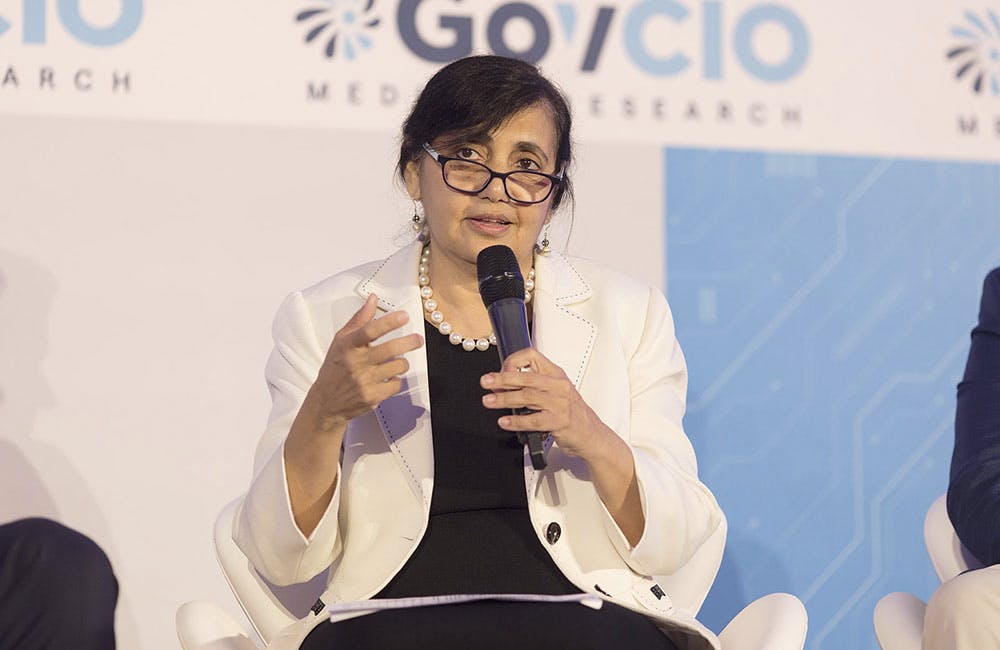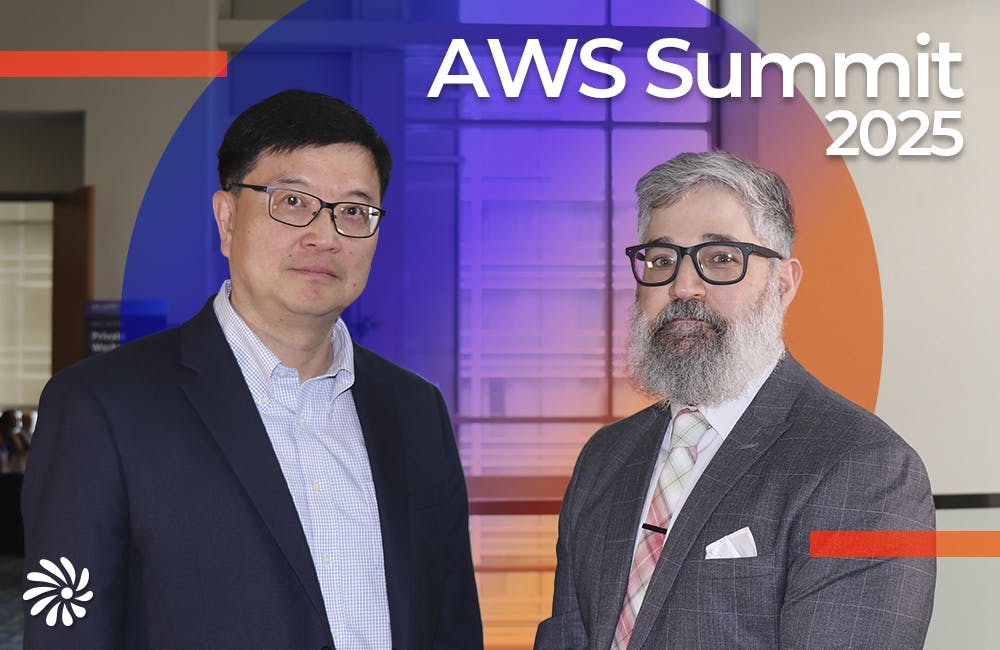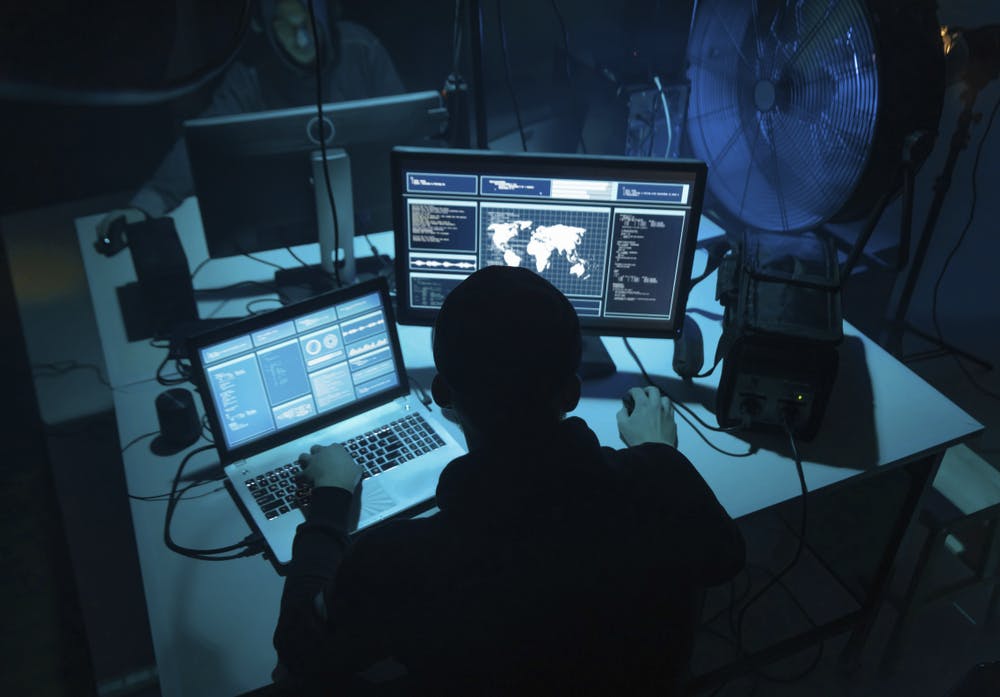Mark Green: ROTC-Like Program, Automation Can Impact Federal Cyber
Policies like the proposed Cyber PIVOTT Act could be critical boosts to federal cybersecurity challenges fraught with compliance burdens.

A new bill proposes an ROTC-style scholarship program approach to hiring cybersecurity talent, a move among Rep. Mark Green’s cybersecurity policy priorities that include filling a workforce shortage, reducing compliance burdens and disincentivizing threat actors.
“If you want to increase the flow through the pipe that production pipe to produce those cyber experts, you have to increase the diameter of the pipe,” House Homeland Security Committee Chairman Green said Thursday at CyberScape Summit in Bethesda, Maryland, about his Cyber PIVOTT Act. “If you go and get a two-year degree and get the technical skills, we’ll pay for that in a scholarship. We’re going to get 10,000 of those a year, and then you pay back by working in any level of government.”
The chairman discussed the proposed legislation as one solution to several challenges the federal government is facing with regard to combatting increased cyber adversaries that threaten national security. For Green, whose committee oversees the Department of Homeland Security, cybersecurity is top of mind.
“Our No. 1 [priority] now is really cyber,” Green said at the event.
In addition to the workforce component, he outlined how policy could impact streamlining compliance and addressing economic models that facilitate bad actors.
“A $3,000 laptop and a kid in Russia can do a lot of harm, and the cost benefit to that guy or gal is very favorable, whereas for the businesses that are protecting themselves it’s just the opposite,” he said.
Green believes the current approach to compliance requirements are decreasing the ability for organizations to focus on what matters.
“We can fix some things like that SEC rule basically says you have to report a breach within 4 days, when it takes an average of 7 to 11 days or more to patch a breach, so that’s sort of like announcing to the world that we’ve got an open door,” he said.
He touted automated scorecards as taking the human out of the loop and reducing compliance burdens.
“We need a compliance scorecard that’s automated, that measures all the things that the government requires, and boom, it’s done. So the vision starts with defining what that is, and then building systems that will accomplish it in as efficient manner as possible,” he said.
“With policy, we get very specific and say, for example, in compliance that equipment has to meet a certain standard. Of course, technology runs very quickly — a lot faster than Congress — and so we wind up tying the hands,” he added. “We have to be very careful about what policy we implement and make sure that it leaves the agility in place because when it comes to cyber defense, it’s all about agility. There are things we can do, but we want to just be very careful.”
This is a carousel with manually rotating slides. Use Next and Previous buttons to navigate or jump to a slide with the slide dots
-

The Next AI Wave Requires Stronger Cyber Defenses, Data Management
IT officials warn of new vulnerabilities posed by AI as agencies continue to leverage the tech to boost operational efficiency.
5m read -

Federal CIOs Push for ROI-Focused Modernization to Advance Mission Goals
CIOs focus on return on investment, data governance and application modernization to drive mission outcomes as agencies adopt new tech tools.
4m read -

DOD Can No Longer Assume Superiority in Digital Warfare, Officials Warn
The DOD must make concerted efforts to address cyber vulnerabilities to maintain the tactical edge, military leaders said at HammerCon 2025.
4m read -

Tracking CIOs in Trump's Second Term
Stay informed on the latest shifts in federal technology leadership as new CIOs are appointed and President Trump's second term takes shape.
6m read -

Inside Oak Ridge National Lab’s Pioneer Approach to AI
Energy Department’s Oak Ridge National Lab transforms AI vulnerabilities into strategic opportunities for national defense.
22m listen -

AWS Summit: Innovation Accelerates IT Delivery at DOD
Marine Corps Community Services is tackling outdated IT processes with agile development and cutting-edge cloud security to deliver mission-critical capabilities faster.
12m watch -

AWS Summit: NIST Secures High-Performance Computing Against Evolving Threats
NIST’s Yang Guo reveals the broad attack surface of high-performance computing and explains developing guidance and future-proofing security strategies.
9m watch -

Trump Overhauls Federal Cybersecurity with New Executive Order
The new directive aims to strengthen digital defenses while rolling back "burdensome" software requirements and refocusing AI security.
3m read -

AWS Summit: Forging Successful Cloud Modernization Partnerships
Industry leaders share insights on the critical role industry partnerships have in enabling government agencies to navigate procurement challenges for cloud and zero trust solutions.
24m watch Partner Content -

CISA's CVE Program and Why it Matters for Zero Trust
The vulnerability program provides the cybersecurity community visibility into software as part of a key pillar of CISA's zero trust model.
5m read -

Air Force, Coast Guard Talk Data Security Efforts for AI Development
The services' AI initiatives include efforts like creating clean training data, countering data poisoning and bridging siloed teams.
4m read -

DHS Secretary Urges Congress to Reauthorize CISA 2015
Federal leaders highlight CISA 2015's role in strengthening public-private partnerships and defending against evolving cyber threats.
3m read

















